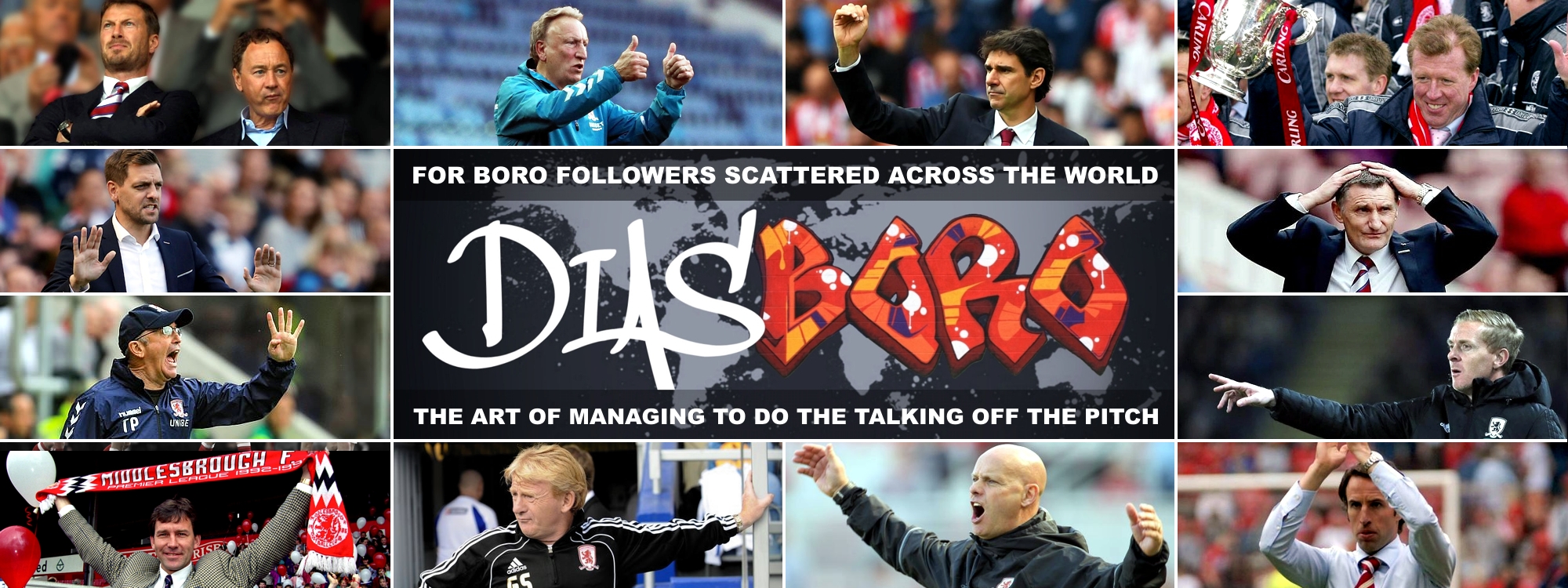Modern football is as much a game as a personality contest. It is the most appealing personalities that endure in tandem with footballing gifts. Results, statistics and even technique alone are not enough in a world where fans need heroes to believe in – those who allow their intense desire, desperation even, to succeed their way at the expense of everything else are in danger of alienating the fans. Aitor Karanka is learning this the hard way.
No one loves the top dog – everyone loves the underdog, the figure who combines guts, endeavour and the will to prove any doubters wrong with considerable ability. Jordan Rhodes had all of this, and much more.
Rhodes’ appeal at Boro transcended that of the archetypal goal poacher we already knew he was. Months previously he had made no secret of his desire to join the then upwardly mobile Karankanaut, reuniting with his Uncle Steve (Agnew, not Gibson) while firing a club to promotion.
His affable and popular manner off the pitch pleased everyone, and his humility on it was admirable (at Birmingham, he was clearly reluctant to claim an equaliser from a horrendous goalkeeping error, regardless of the goal’s importance). His transfer fee and considerably large wages were irrelevant: he felt like one of us, someone who plugged into the “we shall overcome” mentality of a region repeatedly hard done by.
That, in a way, was the problem. In the days leading up to his arrival, Karanka’s Boro seemed almost anything but hard done by, triumphing through collective strength to once enjoy a healthy lead at the top of the Championship, with a game in hand. The possibility that his impending arrival upset the collective and paved the way for the departure of the low-scoring but popular Kike Garcia could be raised, but it doesn’t hold much water: Rhodes’ intuitive understanding with a rejuvenated Gaston Ramirez led to a greater openness in Boro’s games, especially home encounters with Cardiff and Ipswich and the penultimate game at Birmingham.
We can look back on it now and say this did wonders for entertainment, but not necessarily for a manager and a club who, at the time, needed to ensure that the right things were done at all costs. It arguably placed him at a quandary with Karanka and modern football in general. As good as Rhodes’ off-the-ball movement and knack of finding the right place at the right time might be, it did not come accompanied with the right finish often enough. And at a time when we needed more goals to ease the pressure on us during the run in, this, and his lack of pace, did not work in his favour: quite possibly playing a major part in his relative shunning this season before the move to Sheffield Wednesday.
To be fair to Rhodes, confidence issues played their part. When you move to a bigger club, for a massive fee, there is a greater pressure on you to perform, and every missed chance receives higher scrutiny. Higher still, maybe, was the pressure on him to adapt to the modern day requirements of a top level No. 9: being flexible and tenacious enough to regularly act as a supply striker from out wide if need be, or being big and physical enough to lead the line and bring others into play.
At the top tier, the need for a forward to be relatively clinical is paramount if he’s doing little else. Otherwise, he becomes over-reliant on a very healthy supply of assists which a newly promoted team that likes to pass the ball through the middle can’t be regularly trusted to provide. This, in turn, leads to the forward getting easily swallowed up – and frustrated.
But, to give Rhodes even more credit, he soldiered on, and handled his omission with great dignity. Much less dignified was the online furore that arose from his absence, the kind that elevates the ability of players who don’t play. I’m talking about The Cult Of The Missing Men which also surrounded the absence of Luke Williams, Adam Reach, Scott McDonald and Nicky Bailey from Tony Mowbray’s Boro.
As long as those on the pitch fail to deliver, the clamour for The Missing Men grows, and the hullabaloo surrounding their absence risks becoming far more damaging than the player not playing. I wonder if I’m alone in believing that Karanka would have been more open-minded towards Rhodes this season had the danger of one man upstaging the efforts of an entire club not been so prominent. A distasteful ruthlessness is not merely recommended but demanded in the Premier League. How often, because of sentiment, do we backtrack to praise the man who isn’t there at the expense of the men who are?
Rhodes had already been an underdog by battling to adapt to a system that didn’t really suit him and eventually coming good with a purple patch of five goals that were invaluable to promotion. Now, he was an underdog for not being given a chance. The same fans who had labelled him a waste of money when he missed sitters were clamouring for his appearance.
It would be wrong to criticise fan reaction too much. I know opinions flip-flop depending on timing, manner and circumstance, but the extremity of the reaction seemed, at times, undeniably harmful.
Again, not that this bothered Rhodes. He gave his all whenever he actually appeared, so much so that when he did come good, the response was overwhelmingly positive. The final fifteen minutes at Bolton last season are enduring evidence of this.
I think, as a consequence, we wanted Rhodes to be a great Boro forward. It is no wonder then that perhaps sentimentality is clouding our judgement in the search for a heroic narrative, another guy who, like Albert Adomah might have, found his way from the lower leagues to triumph at the top. And the fact that we’ll never know what might have been will uncomfortably linger with us.
But Rhodes has moved on, and we must too. Far better that we forever recognise him as an oasis of welcome simplicity in a sea of tactical complication – a centre forward who liked to score goals, put himself about the right way and made an invaluable contribution to our promotion. For that, he should always be appreciated – and remembered.



